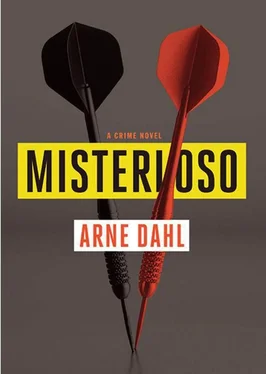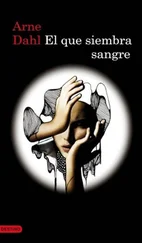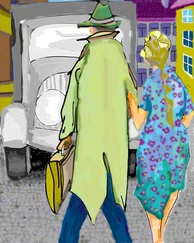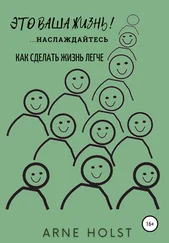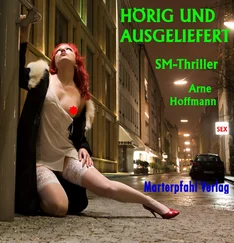Norlander drew two blue rectangles on the whiteboard and then filled them in with a number of smaller squares and rectangles. Then he drew a short line that stretched diagonally from the same side of both rectangles.
“That’s the living room door,” he explained. “As you can see, both rooms are basically square-shaped. The arrangement of the furniture and the layout are practically identical. It was here, on the sofa along this wall farthest from the door, that the perp was sitting. He waited until the victim moved slightly to one side so that the slugs would end up in the wall and not go flying off to some unknown fate outside the door. Then he fired two shots through the victim’s head.”
Norlander drew a diagonal line through each square, indicating the path of the shots from the sofa positioned directly opposite the doorway.
“The similarity may have two functions. Either it indicates a ritual, meaning that we’re dealing with a highly specific method of execution, and the intention could be for someone to recognize this method and feel threatened by it. Or else it’s a trick, directed at us, to make us anticipate the same pattern the next time; if the symmetry is broken, we might then think that the crime isn’t part of the series. But I think someone should do some checking on this M.O. with Interpol and the rest of the international contact network, to see if this is a recurring execution method used by any existing terror groups or mafia organizations.
“But right now our most important job is to predict who the next victim will be. It’s not going to be easy. As I’m sure you can imagine, there are scores of connections between Kuno Daggfeldt in Danderyd and Bernhard Strand-Julén in Östermalm. We can divide them up into five parts: common enemies, common circles of friends, common leisure activities, common business interests, and common board memberships. These areas will probably overlap somewhat, so they should just be taken as general guidelines.”
Norlander went back to his place at the table and sat down. Hultin nodded and took the floor.
“Okay, if we assume that this pattern also applies to time, then nothing is going to happen tonight. The first murder took place in the very early morning hours of March thirtieth; the second sometime after midnight on April first, today. I think Commissioner Mörner stated it quite clearly. If the pattern holds, though I grant you it’s based on premises that are still much too vague, then murder number three will take place tomorrow night.
“It’s unreasonable to think that before then we’ll be able to close in on a suspect and put him under surveillance. But it would be good to at least narrow the field of possible targets so that we can then call on the willing assistance of the Stockholm police force and watch maybe five or six of the most likely candidates. Keep in mind the home-alone and arriving-home-late element.
“I suggest the following work assignments: Viggo will handle Interpol and the M.O. angle; Nyberg will try to track down any common enemies, with particular attention to the distant past, the Stockholm School of Economics, and their paths to prominence. Holm will call people in their circles of friends and find out if there are any secret lovers or the like. Hjelm will focus on their leisure activities: sailing, golf, fraternal orders, and anything else that can be discovered. Söderstedt will tackle their business interests. And be sure to get all the help you need from the National Economic Crimes Bureau; that’s probably going to be the toughest area to deal with. And Chavez will check up on the various board memberships that both victims have held, both now and in the past.
“I’ll be in charge of the overall picture, the assignments, decision making, and so on. This damned whiteboard is going to fill up with flow charts. It’s almost four o’clock now. I suggest we put in a few hours so we can set up an effective work plan for tomorrow.”
Hultin paused to think. Then he nodded slightly, as if to indicate that he’d said all he wanted to say. Just as he was about to stand up, Arto Söderstedt cleared his throat, and Hultin sank back into his chair.
“What’s the work schedule going to be?” asked Söderstedt.
“Well, as I said, we’re all going to be putting in a lot of hours until this thing is solved. You can forget about any union contracts and legal work hours for the time being. In principle, the entire group is on call twenty-four-seven. You can choose to see it from the bright side-special loopholes have been created so that we can make use of the maximum allowable overtime. If this thing goes on for long, you may be earning a lot of extra pay. Or you can choose to see it from a negative point of view. Marriages and the like are going to suffer, especially if this goes on through the summer.”
Again Hultin made a motion to get up; again he sank back into his chair.
“Just one more question,” Söderstedt said. “What about Säpo?”
Hultin nodded. It was impossible to interpret his brief pause. “Right. Well, the Security Police will certainly be involved. As usual, they’ll carry out their parallel investigation in secret, but the plan is for us to ‘exchange information.’ ” Hultin’s quote marks fluttered around the room like little death’s-head hawk-moths. “One day in the very near future, their group is going to show up here to introduce themselves and discuss the security aspects of the case. I’ve had certain indications, you might say, that the security division of the military will also step in at the slightest hint of any international military involvement. So we have several reasons to hope that this can stay on a national level.”
That was as far as Hultin’s subjective opinion went.
He got up and went out to the corridor. They followed, single file, well aware of what lay ahead of them, and disappeared, two by two, into their respective offices.
Jorge Chavez and Paul Hjelm went into room 304. It was so small that it really had only enough space for the two desks, which had been shoved together. The computer stood on the crack between the two desks; the monitor could be turned to face in either direction. Squeezed into the corner of the room was a little table with a coffeemaker.
At least the minuscule room had a window facing the courtyard. Hjelm stepped over to the window and looked out. He could see sections of police headquarters surrounding a small, concrete yard. Under the window stood a little table with an old dot-matrix printer; the cables stretched like tripwires across the floor from the computer.
“If we quickly swallow our disappointment at not getting our own offices, this will probably do just fine,” said Chavez. “Which desk do you want?”
“It doesn’t look like it makes any difference,” said Hjelm.
Chavez sat down on the chair closest to the door, and Hjelm took the other. Both tested the chairs by rocking back and forth as they absentmindedly leafed through the file folders on the desks in front of them.
“Better than Sundsvall,” said Chavez.
“What’s better?”
“The chairs. At least they’re better.”
Hjelm nodded, noticing the unanswered questions hovering in the air between them. He imagined that the other man noticed it too.
Chavez broke the rather oppressive silence by jumping up and asking Hjelm, “Coffee?”
“That might be a good idea.”
Chavez lifted the lid of the coffee container sitting on the little table in the corner. Then he bent down and sniffed.
“Ah,” he said as he let the coffee grounds slide through his fingers. “Ah. What is it they call this? The King’s Coffee? Would you mind if I brought along a South American blend tomorrow instead?”
“Okay, but leave that one here.”
Читать дальше
